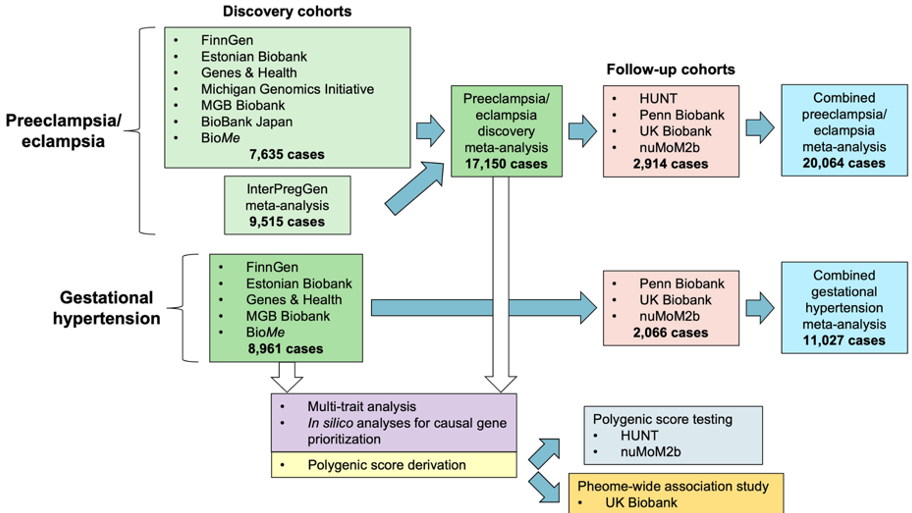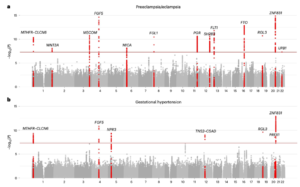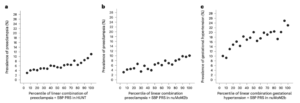CVRC investigators, Drs. Michael Honigberg and Pradeep Natarajan, analyzed 700,000-plus women in a genome-wide association study of preeclampsia – the largest study globally to date.
Honigberg MC, Truong B, Khan RR, et al. Polygenic prediction of preeclampsia and gestational hypertension. Nat Med. 2023 Jun;29(6):1540-1549. PMID: 37248299.
The hypertensive disorders of pregnancy (preeclampsia/eclampsia and gestational hypertension) represent a leading cause of maternal and infant mortality both in the U.S. and globally, but the biology of these conditions remains incompletely understood. Drs. Michael Honigberg and Pradeep Natarajan led an international consortium to perform the largest genome-wide association study of preeclampsia to date and the first distinct analysis of gestational hypertension using genetic data from >700,000 women across multiple global cohorts. These investigations revealed 18 regions of the genome linked to one or both conditions, 12 of which were novel, implicating angiogenesis, renal glomerular function, immune signaling, and cardiac natriuretic peptides in the biology of these disorders. In addition, the authors used genetic association analyses to derive a polygenic score for preeclampsia/eclampsia that improved net reclassification beyond traditional risk factors and could improve targeted prescription of low-dose aspirin for preeclampsia prevention. Overall, these findings provide new insights into the biology of pregnancy-induced hypertension, suggest new directions for prevention and treatment, and further suggest that genetics may help identify women at high risk during pregnancy.
Manhattan plots of preeclampsia/eclampsia and gestational hypertension in combined discovery and follow-up meta-analysis.
Polygenic prediction of preeclampsia/eclampsia and gestational hypertension in test cohorts.



